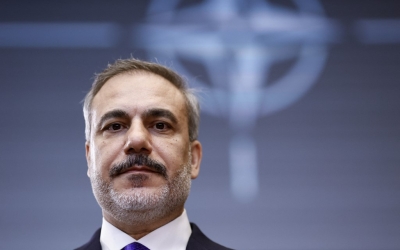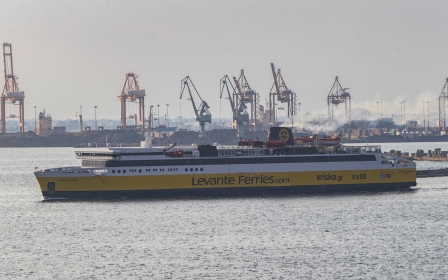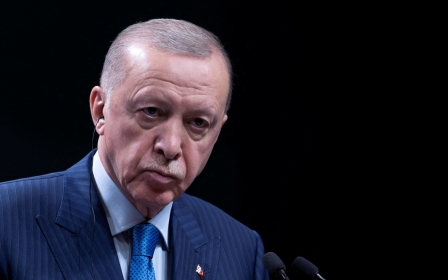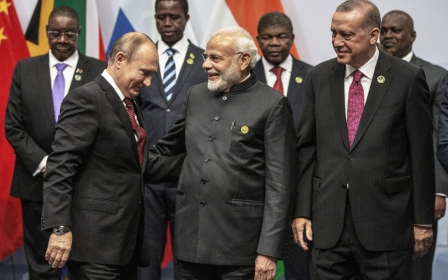Orthodox patriarchate removed from Ukraine statement after Turkey protests
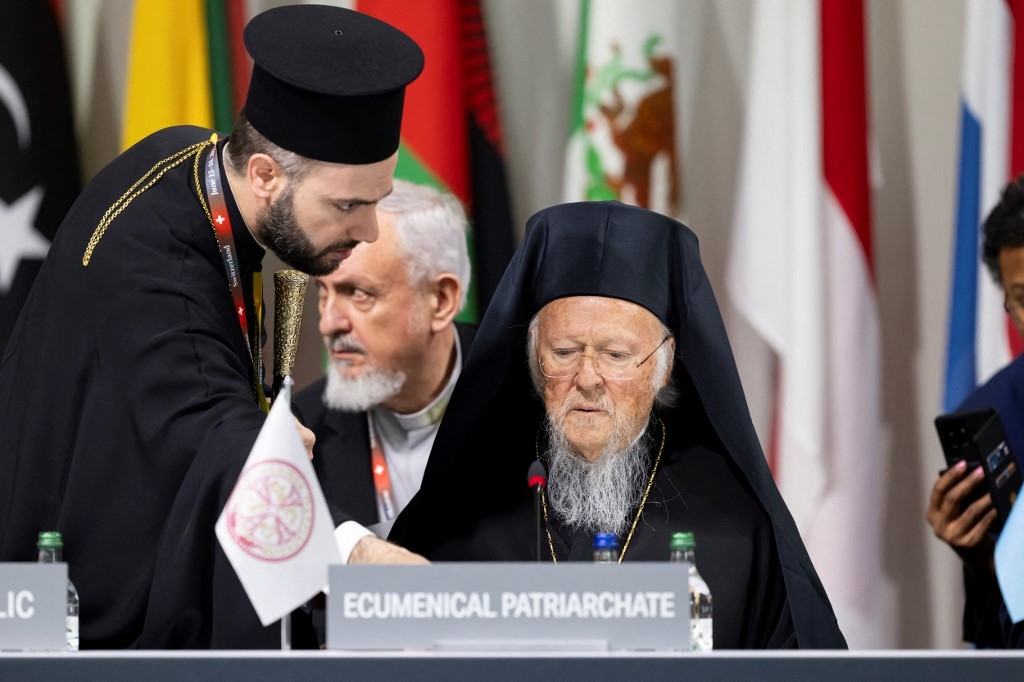
The organisers of the Ukraine peace summit, held earlier this month in Switzerland, have removed the Ecumenical Patriarchate of the Eastern Orthodox Church from the list of signatories following protests from Turkey.
Despite Patriarch Bartholomew attending the summit, which took place on 15-16 June, only as an observer, his signature on the communique sparked outrage in Turkey several days after the conclusion of the conference.
Numerous opposition publications labelled the incident as "scandalous", claiming it violated Turkish sovereignty and the Lausanne Treaty, even while Turkish Foreign Minister Hakan Fidan was in attendance.
As ecumenical patriarch, Bartholomew is considered by many as the head of the Orthodox Church. The patriarchate is based in Istanbul, where it was founded in the fourth century, when the city was known as Constantinople.
However, Ankara does not recognise the patriarchate's "ecumenical" title under the Lausanne Treaty, which recognised the sovereignty and the boundaries of the modern state of Turkey.
New MEE newsletter: Jerusalem Dispatch
Sign up to get the latest insights and analysis on Israel-Palestine, alongside Turkey Unpacked and other MEE newsletters
Turkey treats the body overseeing over 200 million Orthodox Christians in Greece, Russia, Ukraine, the Americas and other regions as a local head of the Orthodox Church, which may be represented internationally only with government consent.
Last week, the Turkish foreign ministry officially requested an explanation from Switzerland.
A Turkish diplomatic source disclosed that the patriarchate was not among the signatories when Ankara initially signed the communique. The communique emphasised that Ukraine's "territorial integrity" should be the foundation for a peace agreement with Russia and called for Kyiv to enter into dialogue with Moscow to end the war.
"The patriarchate was added to the list days after the summit," the source told Middle East Eye, speaking on condition of anonymity.
The source added that Switzerland and Ukraine had to release a new list on Tuesday following pressure from Ankara, removing the patriarchate from the signatories. The Swiss foreign ministry website, however, didn't place the action under the "changes to the list of supporters since the first publication".
The website only added that: "The Ecumenical Patriarchate attended the Summit as observer and supports the principles set forth in the Joint Communiqué."
Israel in attendance
The source also said that Turkey had expressed its displeasure with the event, for other reasons, to the summit's organisers while it was still ongoing.
Fidan was scheduled to co-moderate a panel on food security on the second day of the summit, but he did not attend the session after learning that Israel and the Greek Cyprus administration were also participating.
Turkey doesn’t recognise Cyprus, after a 1974 Turkish military intervention divided the island into two zones.
"Fidan only attended the main session, delivered his speech, and then left the building, returning to Turkey the same evening," the source added.
Ukraine values the presence of the patriarchate, due to a religious dispute with Moscow. Ukrainian churches have been under the authority of the Russian Orthodox Church leaders in Moscow for centuries. But in 2019, Patriarch Bartholomew signed a decree granting independence to the Orthodox Church of Ukraine, marking a historic split from the Russian Church.
In a speech during the summit, Bartholomew stated that the patriarchate established the Ukrainian church as a self-governing ecclesiastical entity, independent of the Patriarchate of Moscow, to meet the needs of Ukrainian Orthodox Christians.
"And we did this - against all odds and at all costs - because we firmly believe that the Orthodox Christians in Ukraine deserve an ecclesiastical voice of their own," he said.
A Ukrainian official told MEE: “We understand the sensitivity and are cooperative with the Turkish side to resolve all concerns. The Ecumenical Patriarchate is important for us from a humanitarian point of view and religious dimension.
The patriarchate's participation in the summit did not affect its status as a religious institution, the official added.
Middle East Eye delivers independent and unrivalled coverage and analysis of the Middle East, North Africa and beyond. To learn more about republishing this content and the associated fees, please fill out this form. More about MEE can be found here.


